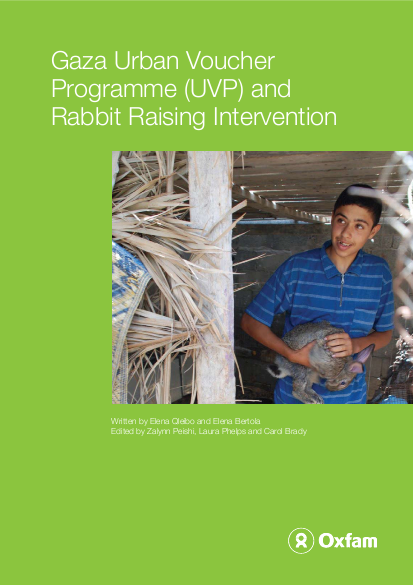
The humanitarian crisis in the occupied Palestinian territory (oPt) is a complex emergency caused primarily by persistent civil, political, and military conflict. The conflict has been marked by periods of differing intensity. Following the second Intifada (upsurge) in 2000, the Israeli government tightened it’s grip on the movement of goods and people in and out of the territory. The Gaza Strip has been blockaded since the Hamas Party took control in June 2007. There have been extreme restrictions on the import and export of goods and restrictions in the freedom of movement in and out of the territory. ‘Operation Cast Lead’ launched by the Israeli Defence Forces (IDF) in December 2008/January 2009 resulted in a large number of deaths and wounded and caused widespread destruction of housing and infrastructure. Despite the unilateral ceasefire declared by Israel on 18 January 2009, violence is still an ever-present reality. Furthermore, the improvements in the security situation have not been accompanied by a reduction in border restrictions for people and goods. Gaza’s established crossings remain for the most part sealed off and tunnels now play a significant role in the economy. The Urban Vouchers Programme (UVP) began at the end of 2009 when the food prices had stabilised sufficiently to allow for the implementation of such a project.
Resource collections
- Gaza humanitarian response
- Innovation
- UN Habitat - Urban Response Collection
- Urban Response - Urban Crisis Preparedness and Risk Reduction
- Urban Response Collection - Community Engagement and Social Cohesion
- Urban Response Collection - Economic Recovery
- Urban Response Collection - Environment and Climate Change
- Urban Response Collection - Housing, Land and Property
- Urban Response Collection - Urban Crisis Response, Recovery and Reconstruction
- Urban Response Collection - Urban Resilience